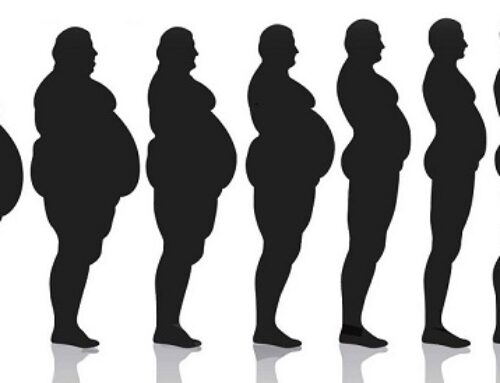In the 1970’s, scientists decided to do research on the interaction between hormones, appetite, and weight. Using rats for their study, they surgically removed the ovaries from female rats to see what would result. The result was that the rats became ravenously hungry and ate until they became obese.
It appeared that removing the hormone factories (ovaries) from rats caused them to overeat and get fat, but this was far from the truth. When the rats without ovaries were put on a calorie-controlled diet making them unable to overeat, they still gained weight. These rats were only allowed to eat a normal rat portion, no extras, yet they were still ravenously hungry.
The rats became very sedentary, moving only when they had to get to their food. One might think removing rats’ ovaries makes rats fat and lazy, similar to the old idea of ‘calories in/calories out’, but here’s what really happens: removing the ovaries makes the rats’ bodies absorb calories that are circulating in the bloodstream. It’s like the bodies are making and saving fat for a time of famine. And if it’s possible for the rats to eat more, to compensate for all the calories that are being stored and not used for energy, they will do just that. If the rats can’t eat more because there isn’t any extra food, then the rats expend less energy because they have fewer calories/energy to call on for energy. Thus, the rats aren’t getting fat because they overeat, they want to overeat because they’re getting fat!!
Here’s why it happens: in humans, just like in rats, our ovaries make estrogen. When the rats without ovaries were given estrogen, they stopped the out-of-control eating, and went back to a normal intake of food. Estrogen influences a protein called lipoprotein lipase (LPL). LPL will pull fat from the bloodstream and insert it into any cell it sits on. Fat cells will store the fat and muscle cells will pull the fat into them and use it for energy or fuel.
When we have appropriate levels of estrogen, it inhibits the activity of this protein (LPL) on fat cells. The more estrogen is present, the less LPL can pull fat out of the bloodstream for storage, which equals less weight gain. But some of us have had our ovaries surgically removed or the ovaries are not producing estrogen, as in menopause or for other reasons. Incomplete ovary function allows LPL to go unchecked, as there is not enough estrogen to keep LPL in control, which causes LPL to begin pulling in calories that are circulating in the bloodstream for storage.
When we are pulling in these calories circulating in our bloodstream for storage, we tie them up so they are not available for us to use as energy. The calories are in a fat savings account, creating a very tired person because we can’t access the energy needed that is in storage. The more the fat cells steal circulating calories, the more we have to eat to compensate. The fat cells hog the calories, and there are no longer enough calories to go around. This problem is compounded as we get bigger and put on weight. We have even more energy requirements because of our size, and those requirements are not satisfied by tremendous overeating. The only way to make this imbalance work is to expend less energy, so we slow down and become sluggish because our body is getting the message we are in a famine and need to conserve.
We can clearly see the influence hormones play in the role of energy storage and energy access. One might think that laziness and overeating are the cause of obesity, but the reality is that obesity causes sluggishness and overeating!
Obesity is an abnormal growth of fat tissue. It isn’t right that hormones and enzymes that regulate the growth of our fat tissue are not considered in the treatment of obesity. Those who get obese do so because of the way their fat is improperly regulated. Two obvious consequences of this improper fat regulation are overeating and the lack of energy often referred to as laziness (which is often believed to be the cause of obesity today).
When people accumulate excess fat, it means that something has gone wrong in their bodies’ careful regulation of fat tissue. What is the defect? Obesity can be caused by something so small that it would be undetected by any technique yet invented. But whatever makes us fatter and heavier, it seems, will probably also make us overeat.
For the last 50 years, we have had it pounded into our brains that growing heavy is behavioral—even a character flaw—that the problem lies in the brain and not the body. This could not be further from the truth. For example, if you had a height issue, too tall or too short, medical experts would go to growth hormones and enzymes to see what was causing the problem.
It seems clear to me that obesity is not an issue of calories in/calories out as is believed today, but rather, it is truly a problem with the body’s ability to regulate fat. There are many so-called authorities who still teach and push forward the outdated belief that fat gain is because of overeating and lack of physical movement. How unfortunate! It is very hard to change popular opinion.
Cited Reference:
1. Volek and Phinney, 2012, The Art and Science of Low Carbohydrate Performance.








